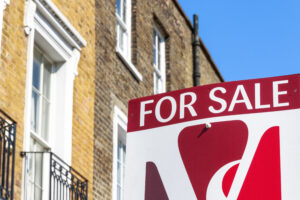
House asking prices have fallen for the second month running as rising mortgage costs start to bite.
The property website Rightmove said that the price of property coming to market this month fell by £905, or 0.2 per cent, to an average of £371,907. That follows an £82 decline in June, which was the first monthly drop in asking prices this year.
Rightmove said that new sellers were starting to “temper their price expectations in response to rising mortgage costs and increasing buyer affordability constraints”. It added, however, that prices were more resilient than many had expected over the first half of the year and that average asking prices were still 2.6 per cent higher than they were in January.
Mortgage rates have soared, with rates on two-year deals hitting 6.7 per cent last week, the highest since August 2008, according to the data provider Moneyfacts.
The rises reflect repeated increases to interest rates by the Bank of England, which has raised base rates to 5 per cent, up from 0.1 per cent in December 2021, in an attempt to curb inflation.
Rightmove said that its data showed that the average interest rate for a five-year fixed, 85 per cent loan-to-value mortgage was now 5.69 per cent and that agents had reported that “some movers are pausing until they have more certainty that mortgage rates have stabilised”.
Rightmove said that this was having an impact on property deals being agreed. “The brakes on the economy being applied by the Bank of England to combat the surprisingly sticky inflation figures are biting, with the number of sales agreed in June now being 12 per cent behind 2019’s more normal market level, contrasting with the surprisingly strong first five months of the year.”
Sales of larger homes fell more steeply than those of homes with two bedrooms or fewer.
Despite this it said that buyer demand was still resilient at 3 per cent higher than in 2019 but the number of properties for sale was 12 per cent lower.
Tim Bannister, Rightmove’s director of property science, said: “While prices and sales bounced back this year much more strongly than most expected, the unexpectedly stubborn inflation figures and the surprise of further mortgage rate rises when many felt that they had stabilised, have contributed to the fall in prices and number of sales agreed.”
He added that there remained “a large volume of motivated buyers who can factor rate rises into their budgets and are continuing to inquire about homes for sale, which is keeping the market functioning”.
He said: “Sellers who price right the first time, rather than starting with too high an asking price only to reduce later, have a much better chance of attracting one of these motivated buyers.”
Steph Walker, chief operating officer at The Agency UK, said: “We’re still seeing over-optimism among some sellers who are still to transition out of the buoyant pandemic market mindset, which can stall sales in some areas with buyers understandably much more price-conscious than a couple of years ago. There is still a shortage of correctly priced stock, and while there is not the level of demand that there was this time last year, the pool of buyers that remain are serious and ready to move with their mortgage in principle ready.”
Read more:
House prices fall for second month in a row as rising mortgages take toll

